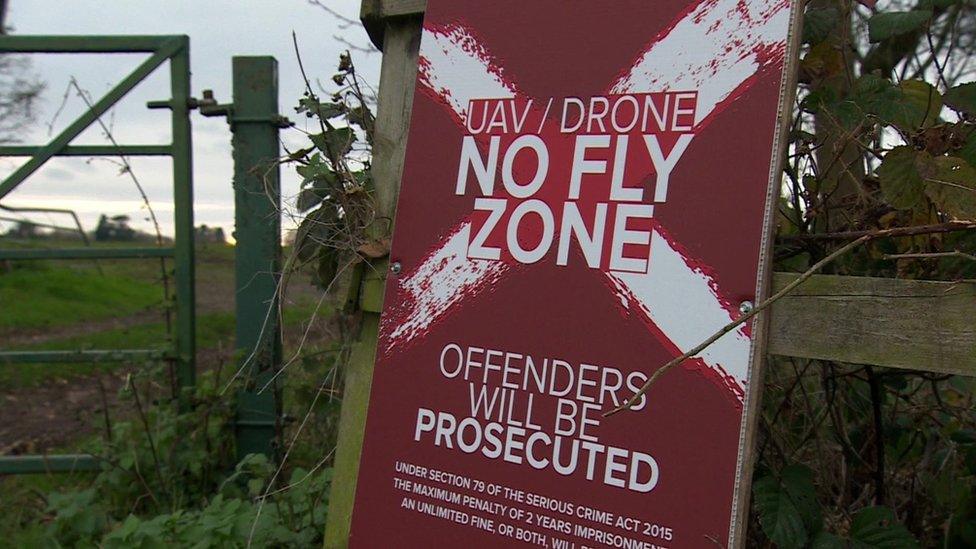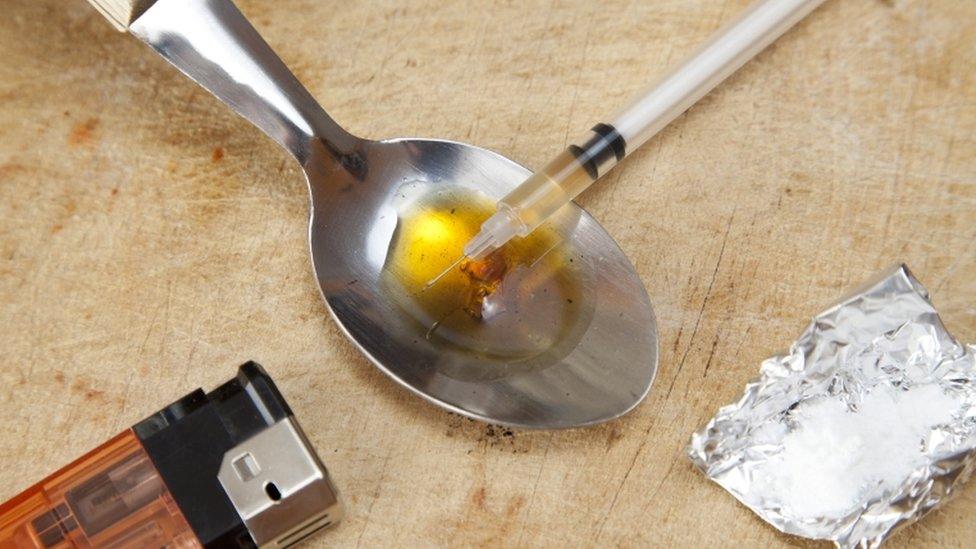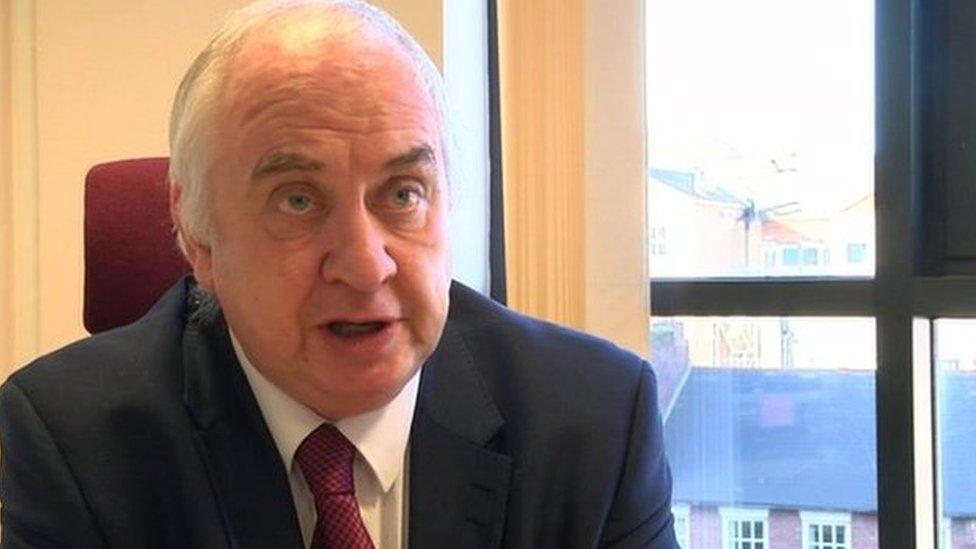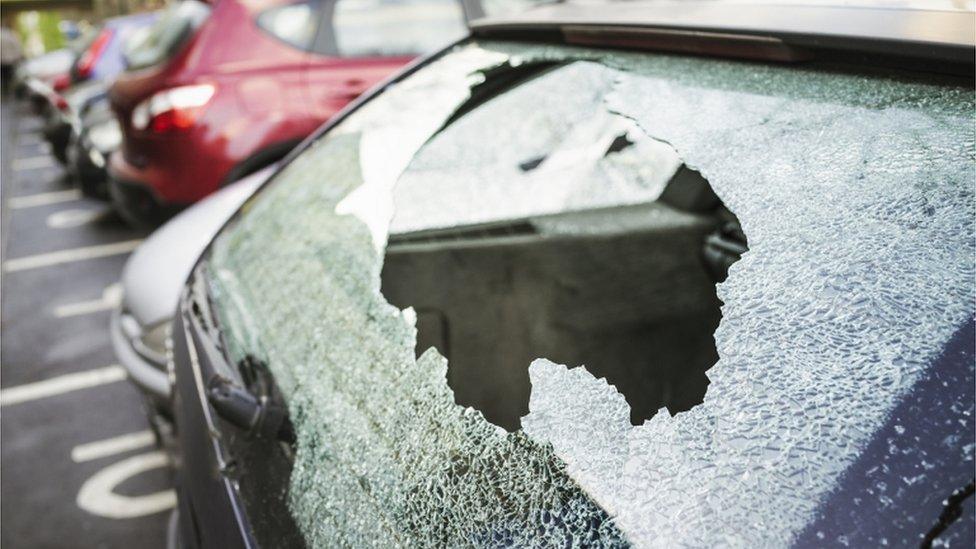Crime commissioner's call for new West Midlands drug policy
- Published

Organised criminals are profiting from the misery of the drug trade according to the West Midlands Police and Crime Commissioner
Revolving Door
"We're fighting a losing battle".
That was how senior police drugs squad officers described their efforts to enforce the laws on substance abuse when I talked to them privately nearly 20 years ago. They told me the drugs epidemic was enabling organised crime syndicates to prosper and encouraging "acquisitive crimes" like burglary and thefts of and from cars by drug users desperate to feed their addiction.
It was the first time I had heard that now-familiar reference to a "revolving door" of offending and reoffending.
Prisons, far from controlling the problem, were becoming hotbeds of drug-taking, with criminal gangs reaping their ill-gotten gains from lucrative business operations on the inside, and out.

Gangs manage to control drug operations while inside prison
And that was long before drones were invented!
Meantime, of course, we have witnessed the grim toll of lives blighted or even lost altogether because of the collateral damage from drug addiction and its many horrifying consequences.
"Drugs Tsars", so-called, have come and gone. We have seen any number of fact-finding missions to the Netherlands, famous for Amsterdam's distinctly laissez-faire approach, and to Portugal and the U.S. where possession of certain drugs has been decriminalised.
At the last election the Liberal Democrats pledged to legalise cannabis so that it could be sold on the High Street.
Much good did it do them.....

Half of all burglary, theft, shoplifting and robbery is committed by people suffering from serious addiction to drugs, the crime commissioner says
Generally the debate about drugs policy has been characterised by the familiar political tit-for-tat, including accusations that anyone daring to venture from the straight and narrow must be "going soft on drugs".
And still that revolving door continues to turn.
"Scourge of Drugs"
That's how the Police and Crime Commissioner for the West Midlands David Jamieson (Lab) describes the problem as he prepares to join the lengthening list of those who have tried to deliver some answers.
His office recently published a detailed report which estimates substance abuse costs the West Midlands economy alone nearly £1.5bn every year. He concludes that half of all burglary, theft, shoplifting and robbery was committed by people who he says are "suffering from serious addiction to drugs including heroin and crack cocaine".
Every three days, according to the report, somebody dies in the West Midlands from drug poisoning "while organised criminals are profiting from this misery".
What's interesting in the choice of words is that it points towards the idea that the addicts are more like victims than criminals and, perhaps, that the police need to be better-equipped to go after the "Mr (and Mrs) Big" figures who currently control this multi-billion pounds-a-year business.

David Jamieson will set out his recommendations for tackling the drugs problem
Undaunted by the stony reception that's greeted so many of those other drugs initiatives down the years, Mr Jamieson is preparing to enter the fray with some recommendations of his own.
He promises a set of practical proposals to tackle the cost of drugs to public services and to reduce the number of drug-related deaths.
War Against Drugs
He should have no illusions about the political climate he is venturing into.
Since the Conservatives came to power, drugs policies have had a distinctly punitive edge, not just for the suppliers and pushers, but also for the addicts themselves. Throughout her time as Home Secretary Theresa May strenuously resisted all calls for any change of direction, ruling out any suggestion of decriminalisation. She has had no great change of heart since becoming prime minister.
Last November, she told the Commons:
"It is right that we continue to fight the war against drugs (because of) the incredible damage they can do to families and to the individuals concerned."

The drugs epidemic enables organised crime syndicates to prosper and encourage "acquisitive crimes" like burglary and thefts of and from cars by drug users
What isn't in dispute is that more lives are now being lost each year through drug misuse than because of road accidents.
Does this make the argument that drug law enforcement measures already costing £1.6 billion a year need to be further stepped-up? Or that they simply do not work?
Sunday Politics exclusive
Mr Jamieson will reveal exactly what he is recommending when he speaks exclusively on this weekend's Sunday Politics Midlands. Also joining me in the studio will be Amanda Milling, Conservative MP for Cannock Chase and Jack Dromey, Labour MP for Birmingham Erdington, who was until recently the shadow policing minister.
And I hope you will join me too. We are in our usual 11.00 o'clock slot on BBC One this Sunday 11 February 2018.